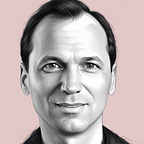The Ivory Tower Can’t Keep Ignoring Math
These days, mathematics is used everywhere and has huge power. Math is used to design our airplanes, to ensure that bridges don’t fall down, and to create our computers. It goes without saying that with math, a lot can go wrong.
Our lawmakers desperately need this explained to them in an unbiased way so they can appropriately regulate, and math-using companies need to be held accountable. But academics have been asleep at the wheel, leaving the responsibility for this education to well-paid lobbyists and employees who’ve abandoned the academy.
That means our main source of information on bad math — often after something’s gone disastrously awry—is the media. But this coverage often misses everyday issues and tends to be far too credulous when it does exist. Much of what should concern us is more nuanced and small scale — and much less understood — than what we see in the headlines. Moreover, we shouldn’t have to depend on journalism to do the tedious, serious work of understanding mathematics any more than we depend on it to pursue the latest questions in sociology or environmental science.
We need academia to step up to fill in the gaps in our collective understanding about mathematics. We need robust research on optimization, statistical sampling, topography, and set theory. And we need research to ensure that the same math mistakes aren’t made again and again. It’s absolutely within the abilities of academic research to study such examples and to push against the most obvious statistical, proof-based or arithmetic failures and dedicate serious intellectual energy to finding solutions. And whereas professional mathematicians working at private companies are not in a position to critique their own work, academics theoretically enjoy much more freedom of inquiry.
There is essentially no distinct field of academic study that takes seriously the responsibility of understanding mathematics. That’s not surprising. Which academic department is going to give up a valuable tenure line to devote to this, given how much academic departments fight over resources already?
There’s one solution for the short term. We urgently need an academic institute focused on mathematics.
(Content adapted from Cathy O’Neill. Don’t worry, we’re not angry. We’re just poking a bit of fun, being members of some of the academic fields already dedicated to what Cathy’s op-ed said doesn’t exist.)
